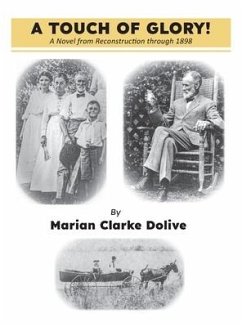William Louis Dolive was born and raised on a family plantation in Daphne, AL, just across the bay from Mobile. At the age of seventeen, he enlisted in what was known by white Southerners as the War of Northern Aggression and served for four years. The story starts with the surrender of "Willie's" Confederate cavalry unit in 1865, following Appomattox. Upon his return to Daphne, he redeveloped the plantation into a marginally viable operation with the help of formerly enslaved people who stayed with the family as employees - until his father returned from Union imprisonment and fully recovered. An entrepreneur at heart, after William gained experience by working in naval stores (pitch and turpentine), he started a new business with uniquely acquired financing. Following his marriage and success in two locations, he sold and moved his family to Orlando to become a citrus grower. This business ultimately thrived despite serious setbacks. William was both civic-minded and very attentive to the needs of his children, with a special responsibility for his daughters. In his Victorian mind, his duty was not only to provide for the women in his life, but to protect them from even the knowledge of evil in the world. Extremely goal-oriented, diligent, and hardworking, William was a polar opposite from his granddaughter, Marcellite, whose values were shaped by a different set of historical circumstances. A Touch of Glory! ends in early 1899 with the wedding of William's youngest daughter. In reality, this wedding didn't take place until 1907, the same year as author Marian Clarke's marriage to Henry Louis Dolive - and three years before the birth of Marcellite, the main character of the companion book, Engaging Life.
Hinweis: Dieser Artikel kann nur an eine deutsche Lieferadresse ausgeliefert werden.
Hinweis: Dieser Artikel kann nur an eine deutsche Lieferadresse ausgeliefert werden.








